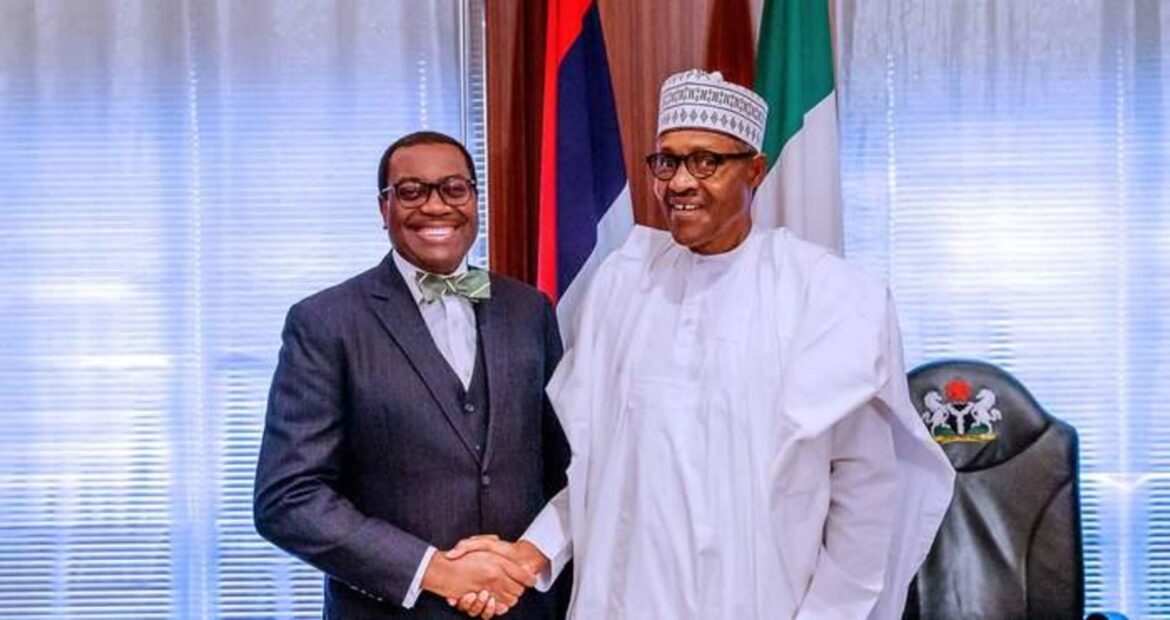By Zayamu Hassan
Following the current war between Russia and Ukraine, food security is currently being threatened in most parts of the Africa including Nigeria.
The President of the Africa Development Bank (AfDB), Dr Akinwumi Adesina, made the revelation when he visited President Muhammadu Buhari, in Abuja, recently.
Dr Adesina who was the former Minister of Agriculture in Nigeria, therefore, warned that “urgent actions are needed to prevent a food crisis in Africa.”
Speaking further, Dr Adesina said: “I am here Mr President to brief you on the impacts of the Russian-Ukraine war and its implications for food security in Africa, and Nigeria; and to intimate you with decisive actions being taken by the African Development Bank to avert what is a looming food crisis.
“Russia and Ukraine dominate export of wheat and maize to Africa. With the disruption of supplies arising from the war, Africa now faces a shortage of at least 30 million metric tons of food imports from Russia and Ukraine, especially for wheat, maize, and soybeans.”
Revealing more worrisome statistics, the AfDB President said: “Price of wheat has soared in Africa by over 45% since the war. Prices of fertilizers have gone up by 300 per cent, and the continent faces a fertilizer shortage of two million metric tons.
“If unmet rapidly, food production in Africa will decline by 20 per cent, and the continent would lose over $11 billion in value of food production.”
While revealing that the AfDB is making efforts to curshion the effect of the looming food crisis, Dr. Akinwumi said: “Mr President, I know that you are also worried about the effects on Nigeria. The African Development Bank, under my leadership, is fully prepared to meet this new challenge head on.
“The Bank has developed a $1.5 billion Africa Emergency Food Production Plan to support countries to produce food rapidly, to mitigate the effects of the war on food prices.
“The plan will support countries to produce 38 million metric tons of food. This will include 11 million metric tons of wheat; 18 million metric tons of maize; six million metric tons of rice; and 2.5 million metric tons of soybeans.
“The total value of the additional food production is $12 billion. This plan, which is before the Board of Directors of the Bank for its approval, will be rolled out by the end of May and will cover all countries of the Bank.”
Specifically for Nigeria, the AfDB President said: “Nigeria is top priority under the emergency food production plan. For the wet season of 2022, the plan will support 5 million smallholder farmers in Nigeria. They will cultivate 2.5 million hectares: one million hectares for maize; one million hectares for rice; 250,000 hectares for soybeans; and 250,000 hectares for sorghum.
“For the dry season of 2022/2023, the plan will support one million farmers across 10 northern states. We expect that this will support 500,000 hectares of wheat. Overall, the Emergency Food Production Plan for Nigeria will produce 9.5 million metric tons of food.”
Dr Adesina said the AfDB will also support Nigeria to develop Special Agro-Industrial Processing Zones.
“We have helped to mobilize $540 million for the program. The African Development Bank has approved a total of $210 million. The Islamic Development Bank, and the International Fund for Agricultural Development (IFAD) have approved $170 million, and $160 million respectively, towards the program.”
The Special Agro-Industrial Processing Zones will be initially rolled out in seven states; Kano, Ogun, Oyo, Kaduna, Kwara, Imo, Cross River, and the Federal Capital Territory, Abuja.
“Dear Mr President, you are passionate about agriculture. Your passion is shared by me and the colleagues at the African Development Bank.
“What is needful now is rapid action by Nigeria to implement the program to further boost food production, reduce food price inflation, and transform the agriculture sector, while assuring food security, and creating jobs.
“Your leadership will be critical for success. Failure is not an option. The farmers are waiting,” the AfDB President said.
Responding, President Buhari, commended Dr Adesina, and encouraged him to work with the right Ministers in Nigeria, recalling that Nigerian borders were closed for about two years to protect local farmers, and curb smuggling. “We made some progress,” he added.




